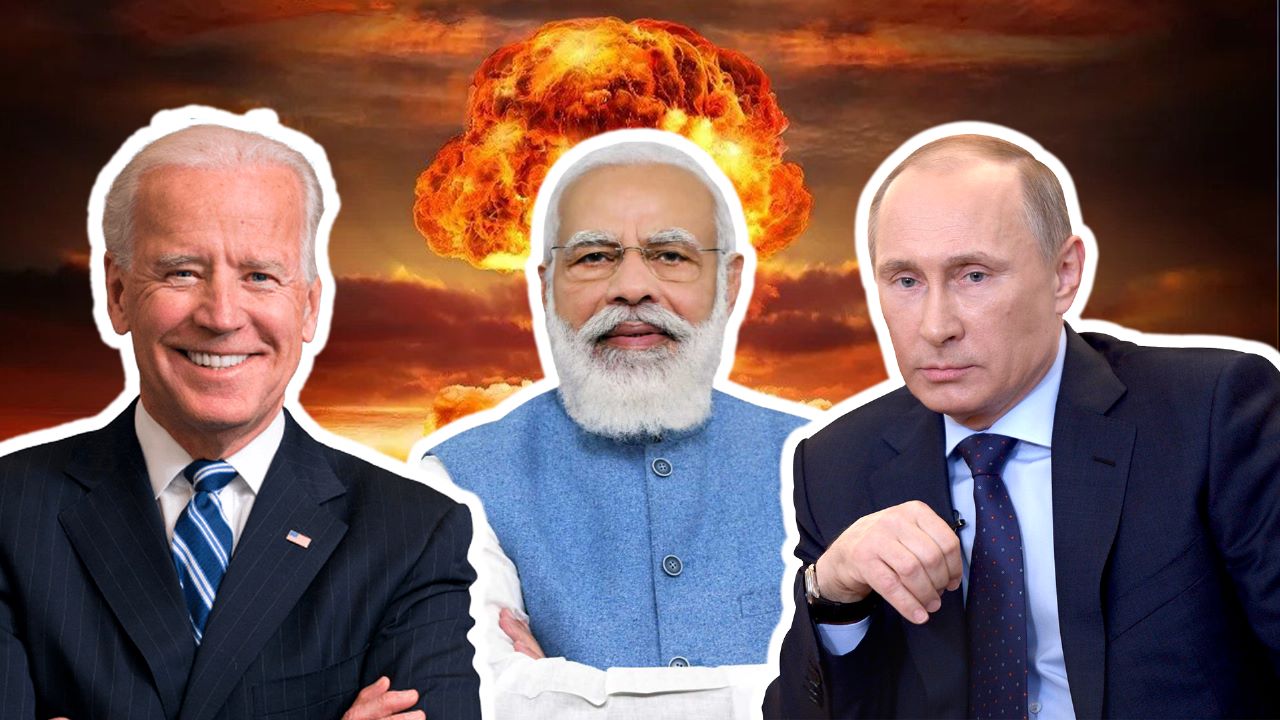India’s defense industry is booming, with ambitious targets to become a manufacturing powerhouse for aerospace and military hardware by 2025. However, as the nation’s factories churn out guns, tanks, and ammunition at an unprecedented rate, the government is tightening its grip to ensure these deadly wares don’t slip into the ‘wrong hands.’
According to a report published by the Economic Times on 28th May, the defense ministry is tightening the monitoring of military equipment manufactured in India.
The Ministry of Defence has sounded the alarm, instructing private manufacturers to rigorously adhere to end-user certification (EUC) rules for exports after disturbing reports surfaced that Indian-made munitions have ended up in “the Wrong Hands.”
What Does ‘Wrong Hands’ Mean?
When the government refers to ‘wrong hands,’ it means that the equipment has reached unintended or unauthorized countries or organizations. This includes weapons reaching conflict zones without the originating country’s permission.
“The primary purpose of tightening control on exports is to prevent Indian-made weapons from falling into the hands of terrorist organizations banned by Interpol and the Indian government, or any other entities not approved by the Indian government,” explained Colonel Abhay Balkrishna Patwardhan (Retd) while talking to EurAsian Times.
Earlier this year, several reports emerged claiming that Indian-made 155 mm artillery shells were being used by Ukraine. India refuted these claims, with External Affairs Ministry spokesperson Randhir Jaiswal clearing that “New Delhi has neither sent nor exported any artillery ammunition to Ukraine.”
In May, a similar incident occurred. A social media account, ‘Ukrainian Front,’ posted photos captioned, “The first recorded appearance of 125-mm high-explosive shells of Indian production (SHELL 125-mm HE) in service with Ukraine.”
⚡️The first recorded appearance of 125-mm high-explosive shells of 🇮🇳Indian production (SHEll 125-mm HE) in service with 🇺🇦Ukraine. pic.twitter.com/gollihY2WR
— 🇺🇦Ukrainian Front (@front_ukrainian) May 28, 2024
This raises questions about how Indian ammunition is being found in Ukraine despite not being exported by India.
Earlier, the government-owned Ordnance Factories were responsible for the controlled manufacture of arms and ammunition. But after the private sector was permitted to export weapons and ammunition, if proper precautions were not taken, there was a risk of these weapons and ammunition falling into the wrong hands, said Patwardhan.
Another aspect to consider is the fate of weapons and ammunition, such as tanks, guns, and shells, once they become outdated. In India, they are disposed of as scrap through a designated process.
For instance, approximately 8,000- 10,000 rifles become obsolete annually. However, there is a concern that this scrap may find its way into the hands of unintended or unauthorized countries or organizations through the gray market. Consequently, Col Patwardhan added, the potential for reverse engineering of these weapons cannot be discounted.
The Ministry of Defence aims to achieve a turnover of Rs 1.75 trillion ($22B) in aerospace and defense manufacturing by 2025, including Rs 35,000 crores ($4.3B) in exports. In the last fiscal year, 2023-24, exports reached Rs 21,083 crores ($2.5B), with the private sector being the primary contributor.
Although the Indian government promotes arms exports, strict regulations are still enforced for specific countries. Presently, Indian companies are barred from exporting weapons to Ukraine, Turkey, China, and Pakistan.
Recent measures include strengthening ‘End-User Certification’ rules for exports to prevent unauthorized use of weapons.

An End-user certificate (EUC) is a crucial document utilized in international transfers, including sales and aid provisions of weapons and ammunition. Its purpose is to certify that the purchaser is the ultimate recipient of the materials and has no intention of transferring them to another party.
In cases where a foreign government demands end-user certification for freely importable items in India before allowing their export, EUCs become mandatory. Many governments employ EUCs to regulate and limit the movement of materials to undesirable destinations.
In addition to export controls, the defense ministry is tightening oversight of imports.
To maintain a watchful eye, the ministry is planning an internal portal to monitor the import and consumption patterns of critical materials like explosives and primers. This digital watchdog will track every ounce of imported goods, ensuring they are transformed into approved exports or domestic products, leaving no room for unauthorized sales or excessive stockpiling.
India has launched the Saksham Bharat initiative, aimed at ensuring that parts or weapons that were previously imported are now manufactured domestically. The government has granted permission to private players and start-ups to import machinery and raw materials necessary for producing these weapons and ammunition. As a result, factories have been established, and applications for the import of materials required for production have been submitted. However, while there is stringent control over exports, the import process has been less regulated.
Consequently, the ministry is now planning to establish an internal portal to monitor the consumption patterns of imports by defense companies, with a focus on critical items such as explosives and primers essential for weapon and ammunition production.
This system will enable the government to track the quantity of imports, their utilization, and production output and ensure accountability. Essentially, it will function as an audit of imports, exports, and production to prevent excessive imports, insufficient exports, and unauthorized sales, Patwardhan explained.
As India asserts its strength in the military-industrial arena worldwide, it faces the intricate task of balancing legitimate exports and domestic production while safeguarding against the risk of its products reaching terrorists, rogue states, or any entity that may destabilize the region. Through stringent regulations and digital surveillance, the country endeavors to ensure that its weapons remain in responsible hands, averting potential diplomatic crises.
- Shubhangi Palve is a defense and aerospace journalist. Before joining the EurAsian Times, she worked for E.T. Prime. In this capacity, she focused on covering defense strategies and the defense sector from a financial perspective. She offers over 15 years of extensive experience in the media industry, spanning print, electronic, and online domains.
- Contact the author at shubhapalve (at) gmail (dot) com.




